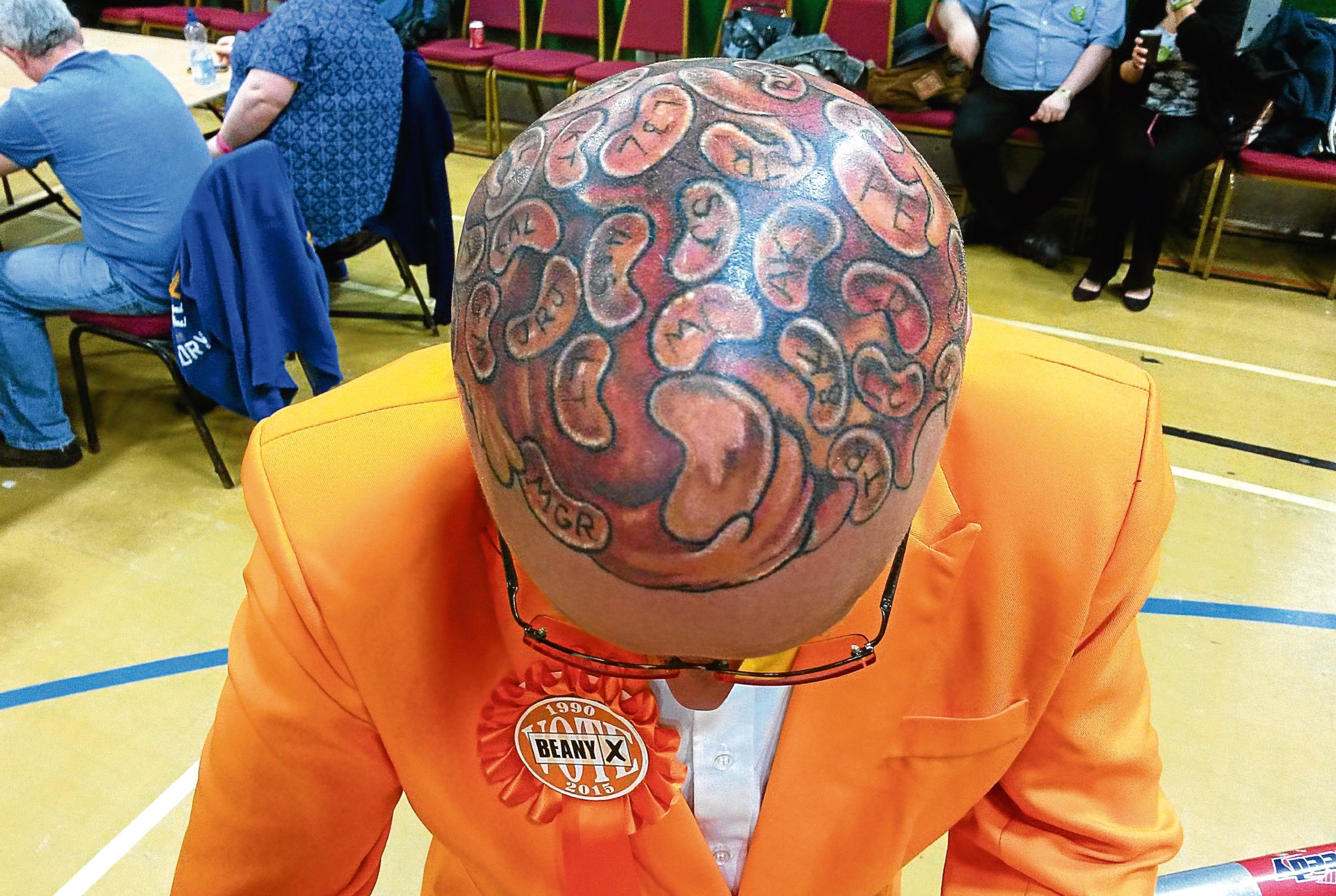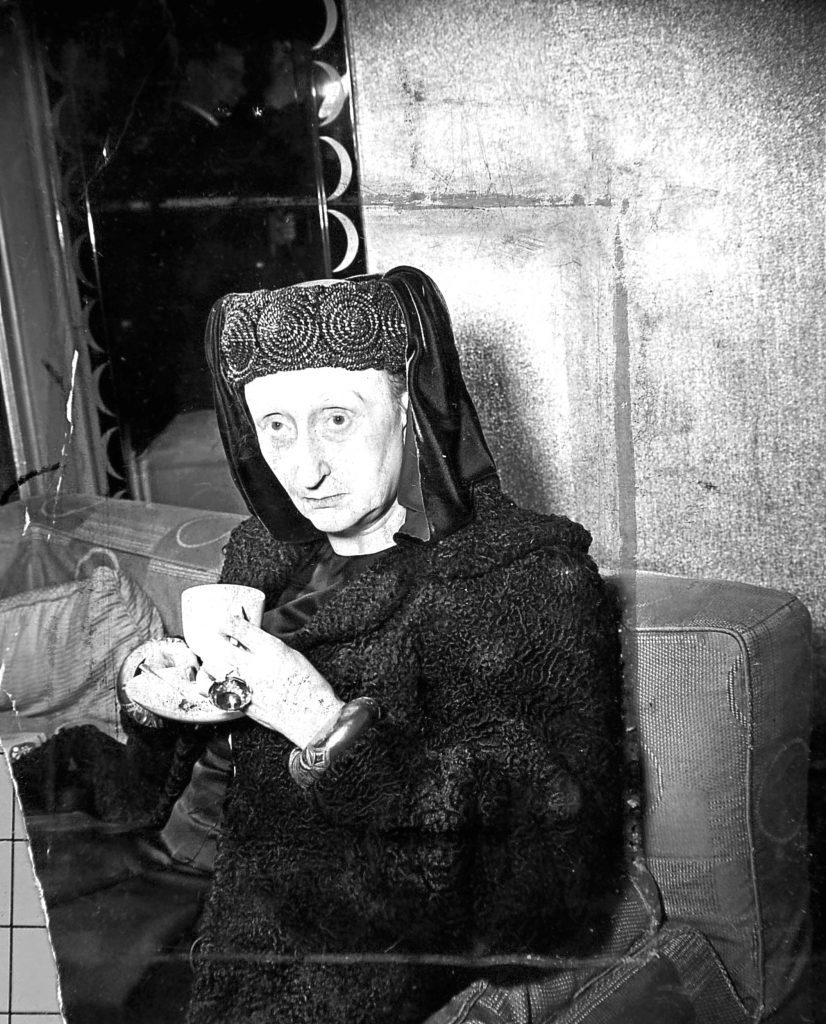
BRITAIN has been behind some world-changing inventions, and we have led the world in many other ways, too.
However, we are also a world leader in producing a certain kind of person — the Great British Eccentric!
A new book looks at some of the weird and wonderful characters who could only have been born in the UK, and who have amazed, shocked or downright baffled us with their lifestyles, beliefs or general mad behaviour.
Often, as author Steven Tucker points out, eccentricity goes hand in hand with intelligence and creativity, none more so than Joe Meek, the late, great, maverick music genius.
“Joe Meek had less than a year to live by the time he claimed to have discovered a talking cat and, perhaps ominously, was spending more and more of his spare time wandering around graveyards,” says Steven.
“His intention was to try to capture the voices of the dead on tape — a task in which he claimed to have succeeded.”
Meek, who wrote the hit single Telstar and would shoot himself and his landlady dead at just 37, said he had recorded the ghostly cat speaking to him at a haunted farm.
He once turned down The Beatles, saying they were: “Just another bunch of noise, copying other people’s music.”
He also rebuffed David Bowie and Rod Stewart.
Meek made many of his records at home, forcing singers to stand in the bath, as the wall tiles gave a nice acoustic, and got pals to stamp their feet on the stairs for drum sounds.
But Joe Meek wasn’t alone in being a little bit eccentric.
Take one military leader from the Second World War.
“Major-General Sir Robert William Norris ‘Loony’ Hinde is best remembered for an incident following the D-Day landings,” says Steven.
“In the middle of the fierce fighting, the insect-collecting Hinde, then a Brigadier, suddenly stopped an important briefing when he spotted a rare breed of French caterpillar crawling across the battlefield.
“‘Anyone got a matchbox?’ he demanded to know, in a state of acute excitement.
“Lieutenant Colonel Michael Craver pointed out this was hardly the time.
“Hinde shouted: ‘Don’t be such a fool, Mike! You can fight a battle every day of your life, but you might not see a caterpillar like that in 15 years!’”
The traveller and poet Lord Byron fitted a lot into a life even shorter than Joe Meek’s.
But he, too, had his foibles — not least a fondness for pet animals, scary big ones at that.
“Stories about Byron’s excessive love of animals include the marble monument erected to his favourite dog after its death,” adds Steven.
“Then there was the trio of geese he rescued from the cooking pot and donated to his bemused banker for safekeeping.
“He also got around his college’s no dogs rule by installing a tame bear in his rooms instead.”
Byron also dabbled in politics, and judging by some of today’s politicos, we can perhaps be forgiven for thinking this is a world with a higher eccentricity ratio.
“Britain’s most-notable current Independent candidate is Barry Kirk, a former computer worker from Port Talbot who is better-known as Captain Beany, having officially changed his name by deed poll,” reveals Steven.
“The leader, and sole member, of the New Millennium Bean Party, Captain Beany claims to be an orange alien from the planet Beanus and to this end, wanders the streets of his Aberavon constituency with dyed orange skin, cape and visor, gold-coloured boots and what seems to be externally-worn underpants.”
But perhaps it’s politicians’ closeness to the upper classes that rubs off on them — after all, the poshest people in Britain are often the quirkiest.
Edith Sitwell is a good example. Born into a very well-to-do family, she hated her parents’ eccentric ways, although was in love with a gay Russian man.
Mind you, her grandmother, Lady Londesborough, wasn’t conventional.
“She required her children to wear gloves at all times, as it was her dream for them to grow up with lovely smooth hands,” reveals Steven.
“She was of such unusual appearance — wearing bizarre, tall, white wigs and old-fashioned clothes — that in old age, she was reputedly once mistaken for a bonfire-night guy while being wheeled through the street in a bath chair, a passing clergyman tossing coins into her lap!”
Evelyn Waugh, who Sitwell asked to be her godfather when she changed religion, was quite eccentric himself, once being married to a woman also called Evelyn,
Later divorced, they were known as He Evelyn and She Evelyn.
Waugh, a brilliant writer, whose son Auberon was very eccentric, too, often wrote at length about other British characters.
Lord Berners was one such man.
“Playing silly pranks involving animals was a favourite of Berners,” says Steven.
“He entertained a horse to tea in his dining-room, and he would drive around wearing a pig mask to disturb the locals.”
Another odd fellow, William John Cavendish-Scott-Bentinck, 5th Duke of Portland in the 1800s, tried desperately to avoid the locals, and everyone else.
“He was a recluse who spent what would now be tens of millions having underground tunnels built around his estate, and the tales of his pathological shyness are quite contradictory,” says Steven.
“On the one hand, he delivered strict instructions to 1,500 workmen that under no circumstances were they to speak to him or even acknowledge him.
“After darkness, a maidservant walked ahead to warn people away.”
Geoffrey Nathaniel Pyke is another name that crops up.
“The years 1939-45 were a curious time for science,” says Steven.
“Pyke’s proposed Cyclo-Tractors were fatally flawed.
“It hinged upon the fact that the victorious Allies had access to plenty of sugar supplies but far less oil, coal and petrol.
“Pyke calculated the calorific content of sugar, and how much energy output this would amount to in terms of the leg muscles’ ability to pedal a giant bike when that sugar was eaten by a prisoner.
“Essentially, German or Italian POWs would become a train’s new engine, with sugar keeping that engine stoked.
“People laughed at Pyke’s human-powered trains, and laughed even more when after his death an article appeared entitled Men In Pipeline: The Idea That Was Never Carried Out.
“This was his insane proposal that troops be shot directly across Europe to wherever they were needed through a network of giant pipes, like a real-life version of Super Mario Bros!”
Great British Eccentrics, by S. D. Tucker, is published by Amberley, ISBN No. 978-1-4456-6032-5, priced £9.99.

Enjoy the convenience of having The Sunday Post delivered as a digital ePaper straight to your smartphone, tablet or computer.
Subscribe for only £5.49 a month and enjoy all the benefits of the printed paper as a digital replica.
Subscribe

